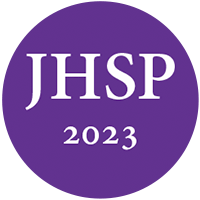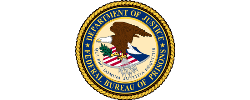The professional home for health service psychologists.
Join a community of 15,000 psychologists and trainees.
Learn it today. Apply it tomorrow.
Connecting you to what you need in your career.
Making a difference.
Knapp, S., Gottlieb, M. C., Handelsman, M. M. (2017). Some ethical considerations in paid peer consultations in health care. Journal of Health Service Psychology, 43, 20–25.
Professional associations often recommend consultation as an essential activity to ensure competence. Although consultation differs from supervision and includes generally few legal risks to the consultants, consulting psychologists should nonetheless strive to promote the effectiveness of the consultee’s practice. Few data exist to guide psychologists who are asked to be, or want to be, paid consultants, but we can offer suggestions based on our experience as consultants. We urge consulting psychologists to pay special attention to informed consent, maintaining appropriate boundaries, and ensuring that they remain within their boundaries of professional competence.
American Psychological Association. (2007). Guidelines for psychological practice with girls and women. American Psychologist, 62, 949-979. doi: 10.1037/0003-066X.62.9.949
American Psychological Association. (2010). Ethical principles of psychologists and code of conduct (2002, Amended June 1, 2010). Retrieved from http://www.apa.org/ethics/code/index.aspx
American Psychological Association. (2014). Guidelines for the psychological practice with older adults. American Psychologist, 69, 34-65. doi: 10.1037/a0035063.
Epley, N., & Dunning, D. (2006). The mixed blessing of self-knowledge in behavioral prediction: Enhanced discrimination, but exacerbated bias. Personality and Social Psychology Bulletin, 32, 641-655. doi. 10.1177/0146167205284007
Gottlieb, M. C. (2006). A template for peer ethics consultation. Ethics & Behavior, 16, 151-162. doi: 10.1207/s15327019eb1602_5
Gottlieb, M. C., Handelsman, M. M., & Knapp, S. (2013). A model for integrated ethics consultation. Professional Psychology: Research and Practice, 44, 307-313. doi: 10.1037/a0033541
Johnson, W. B., Barnett, J. E., Elman, N., Forrest, L., & Kaslow, N. (2012). The competence community: Toward a vital reformulation of professional practice. The American Psychologist, 67, 557-569. doi: 10.1037/a0027206
Knapp, S. J., Gottlieb, M. C., & Handelsman, M. M. (2015). Ethical dilemmas in psychotherapy: Positive approaches to decision making. Washington, DC: American Psychological Association.
Knapp, S., Younggren, J., VandeCreek, L., Harris, E., & Martin, J. (2013). Assessing and managing risk in psychological practice: An individualized approach (2nd Ed.). Rockville, MD: The Trust.
Rogerson, M. D., Gottlieb, M. C., Handelsman, M. M., Knapp, S., & Younggren, J. (2011). Nonrational processes in ethical decision making. American Psychologist, 66, 614-623. doi: 10.1037/a0025215
Sanders, L. (2009). Every patient tells a story. New York: Random House.
Storey J. (2016). Hurting the healers: Stalking and stalking-related behaviors perpetrated against counselors. Professional Psychology: Research and Practice, 47, 261-270. doi: 10.1037pro0000084
Walfish, S., McAlister, B., O’Donnell, P., & Lambert, M. J. (2012). An investigation of self-assessment bias in mental health providers. Psychological Reports, 110, 639-644. doi. 10.2466/2.07.17.PRO.110.2.639-644
Copyright © 2025 All rights reserved. National Register of Health Service Psychologists










